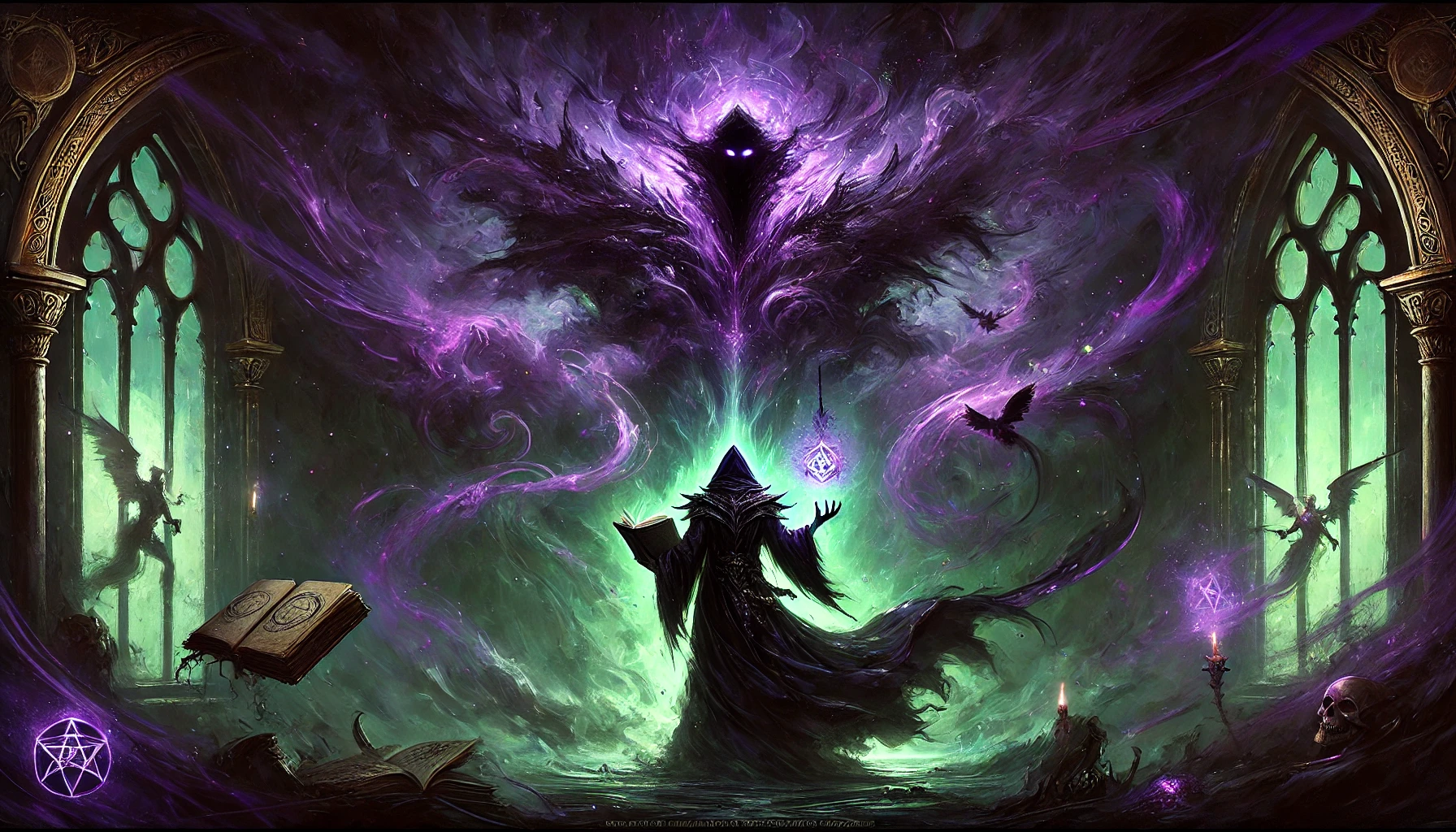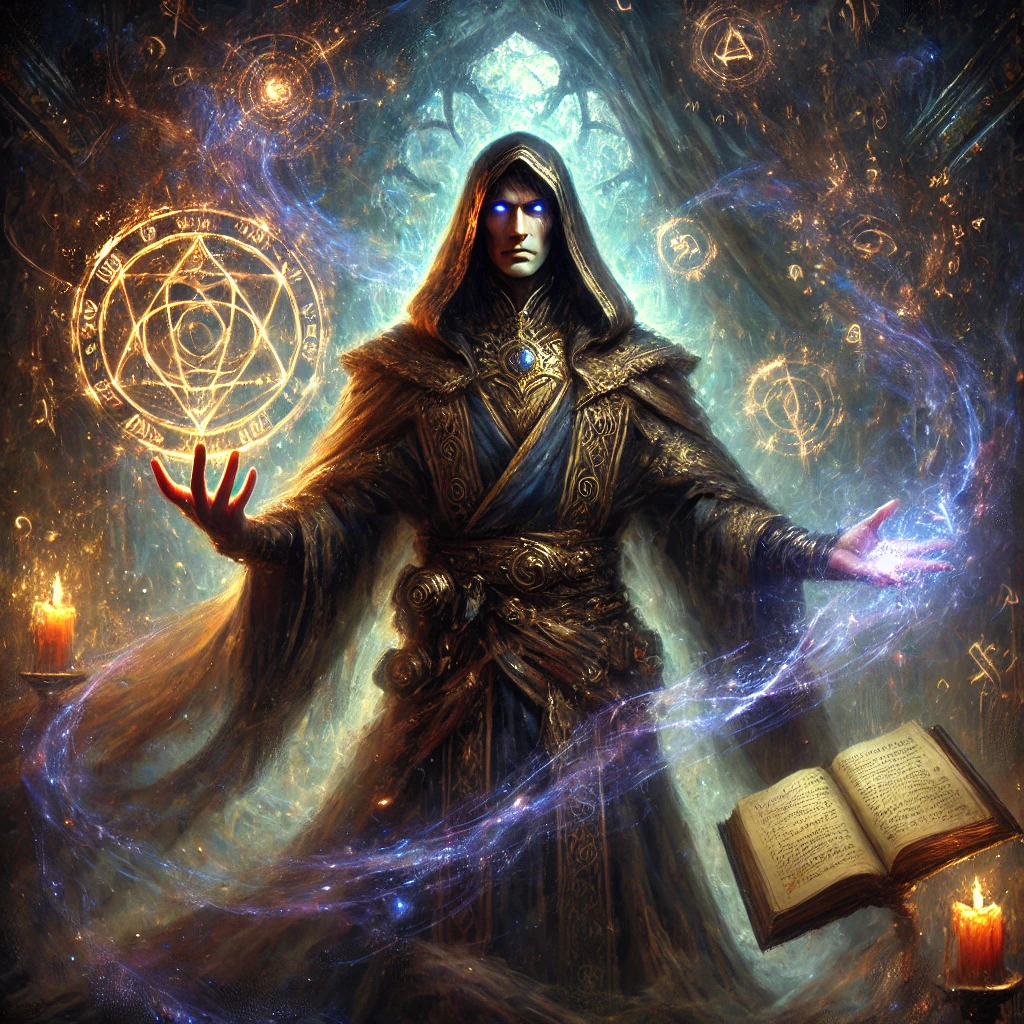Warlock
Warlocks in Tanaria are those who have struck a bargain with forces beyond mortal comprehension, exchanging servitude, loyalty, or ambition for arcane power that defies natural laws. Unlike wizards who study the arcane or sorcerers who are born with magic in their blood, warlocks are chosen, marked, or claimed by their patrons. Some seek out their otherworldly benefactors, desperate for power, knowledge, or revenge. Others never had a choice, their pact formed before they even knew what they were becoming.
The nature of a warlock’s power depends entirely on their patron—whether it be an ancient fey lord, a shadowed entity from the depths of the Void, or a long-forgotten deity seeking resurgence. Some warlocks revel in their gifts, embracing the path of eldritch might, while others live in fear of the price that must one day be paid.
Warlocks can be found in every corner of Tanaria, though their presence is often shrouded in secrecy or misunderstood superstition. In the kingdom of Valoria, warlocks are viewed as dangerous heretics, their power often tied to the Unbound Gods—forbidden deities whose influence was thought to be eradicated. In Necai, warlocks with ties to the Feywild walk a perilous line between the mortal world and the ever-shifting realm of the fae. In the arcane halls of Jou’lunn, scholars dissect the phenomenon of warlocks, seeing them as walking conduits of raw eldritch energy, subjects to be studied rather than feared.
Beyond civilization, warlocks carve their own path. In the depths of Dhuma’s wastelands, warlocks who serve eldritch patrons build hidden sanctuaries, speaking in tongues older than the gods. In the frozen reaches of Skölna, some warlocks are said to have bargained with ancient spirits of the ice, trading their mortality for power that defies even death.
A warlock’s path is never simple. A debt must always be repaid. A price must always be met. Some seek to fulfill their pact, while others struggle to break free from their patron’s grasp. But one truth binds them all—once a warlock is chosen, they are never truly free.





Comments